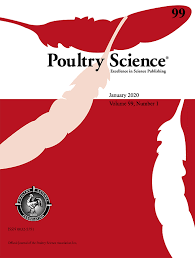Document type : News published in Science
Author: Elisabeth Pennisi
Preview: In some farmers' ideal world, cows would birth only females, sows would bear no boars, and chicks would all grow up to be hens. Such sex ratios would stop them from killing millions of male animals, which don't produce eggs or milk.
Now, scientists are a step closer to this reality. Researchers have harnessed the gene editor CRISPR to produce litters of mice all of one sex. That's a potential boon to agriculture and may offer a more immediate advantage in scientific research. "The paper shows a state-of-the-art solution to producing single-sex species," with "impressive results," says Ehud Qimron, a CRISPR expert at Tel Aviv University who was not involved with the work.[...]In a study published 2 years ago, researchers using the gene editor CRISPR managed to produce altered mice in which four of five litters were all female.
In the current work, that efficiency jumps to 100%, a critical difference as no "wrong" sex offspring are produced. The authors also target a gene that is conserved in many animals, so the technique may prove useful for more than just mice. "The approach seems generalizable to other animal species," including birds and fish, says Michael Wiles, a molecular geneticist at the Jackson Laboratory who was not involved with the study. It could even help with the recovery of endangered species, Wiles says, depending on which sex was in short supply. [...]In the new study, Turner and Crick molecular geneticist Charlotte Douglas worked with Peter Ellis from the University of Kent to harness the gene editor CRISPR to produce either all-female or all-male litters of mice. [...]That could alleviate some ethical dilemmas, some researchers say. "The choice is made before the animal is born," says Tak Mak, a geneticist at the Princess Margaret Cancer Centre in Toronto. For his breast cancer studies, he uses only female mice and so has had to sacrifice all males that are born. This new technology "will eliminate this unpleasant and inefficient reality," he says.
Although Wiles expects same-sex litter production may become routine in labs, he's not optimistic about agriculture. "Sadly, its 'dead in the water' for food production while the world fears GMOs [genetically modified organisms]."
Sue Leary, president of the Alternative Research and Development foundation, a nonprofit organization seeking alternatives to animals in research, says she doesn't see much advantage in the approach. "You can't solve an ethical problem with another ethical problem, which is genetic engineering," she says. The method is "not pragmatic," for culling farm animals, she argues, and researchers can adopt alternatives to using mice.




